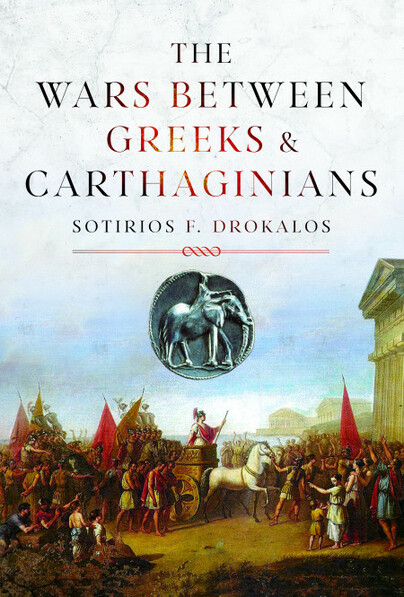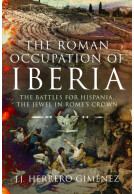Google Books previews are unavailable because you have chosen to turn off third party cookies for enhanced content. Visit our cookies page to review your cookie settings.
The Wars Between Greeks and Carthaginians (Hardback)
By
Sotirios F. Drokalos
Imprint: Pen & Sword Military
Pages: 208
Illustrations: 16 mono illustrations
ISBN: 9781036116408
Published: 7th April 2025
Imprint: Pen & Sword Military
Pages: 208
Illustrations: 16 mono illustrations
ISBN: 9781036116408
Published: 7th April 2025
You'll be £17.60 closer to your next £10.00 credit when you purchase The Wars Between Greeks and Carthaginians. What's this?
+£4.99 UK Delivery or free UK delivery if order is over £40
(click here for international delivery rates)
Order within the next 5 hours, 50 minutes to get your order processed the next working day!
Need a currency converter? Check XE.com for live rates
(click here for international delivery rates)
Order within the next 5 hours, 50 minutes to get your order processed the next working day!
Need a currency converter? Check XE.com for live rates
| Other formats available | Price |
|---|---|
| The Wars Between Greeks and Carthaginians ePub (15.9 MB) Add to Basket | £14.99 |
Before the rise of Rome, the Greeks and Carthaginians were, for centuries, the two most powerful nations of the Western Mediterranean. From the Pillars of Hercules to Sicily and Cyrenaica, the Greeks and the Carthaginians founded cities, created trade routes, interacted with each other as competitors and collaborators, and often went to war. However, the long conflict between the Western Greeks and the Carthaginians has been neglected by modern historians, even though the wars between them are definitely among the greatest, longest, and most dramatic clashes of great powers in history when it comes to the historical breadth and the forces involved. Sotirios Drokalos gives these epic events the attention they deserve.
The competition and conflicts between Greeks and Phoenicians in the West began by the time of the first colonizations during the eighth century BCE and the development of the cultural and economic activity of the two cultures. They intensified after the Greek colonies' consolidation and Carthage's rise as the most significant Phoenician city and a commercial empire during the sixth century BCE. Especially from the beginning of the fifth century BCE and for the next roughly 200 years, the Western Mediterranean was the field of a ruthless bipolar confrontation between the Greeks of the West and the Carthaginians, marked by the actions of remarkable personalities of the ancient world. This historical clash, apart from the vast and bloody battles, the invasions of one side by the other, the sieges and the mass slaughters, also included elements of cultural interaction and exchange, consisting essentially of a practical test of constitutions, social systems, and political views. Under this prism, studying that tumultuous era could be necessary today to better understand Mediterranean and European historical evolution.
There are no reviews for this book. Register or Login now and you can be the first to post a review!
About Sotirios F. Drokalos
Sotirios F. Drokalos holds MAs in International Relations, Military History, and International Anti-terrorism from the University of Bologna and the Niccolò Cusano University of Rome. He is the author of several books and articles published in Italian, Greek, and English, including contributions to the British Journal for Military History.
Customers who bought this title also bought...
Other titles in Pen & Sword Military...















